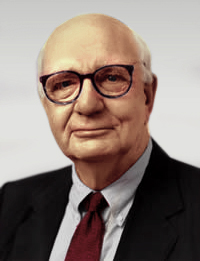A Quote by Elon Musk
The lessons of history would suggest that civilisations move in cycles. You can track that back quite far - the Babylonians, the Sumerians, followed by the Egyptians, the Romans, China. We're obviously in a very upward cycle right now, and hopefully that remains the case. But it may not.
Related Quotes
There's this Indian fellow who worked out a cycle like the idea of stone-age, bronze-age, only he did it on an Indian one. The cycle goes from nothing until now and 20th century and then on and right around the cycle until the people are really grooving and then just sinks back into ignorance until it gets back into the beginning again. So the 20th century is a fraction of that cycle, and how many of those cycles has it done yet? It's done as many as you think and all these times it's been through exactly the same things, and it'll be this again.
You can't anticipate history. It's only when you look back you see what the Romans did, and what various other empires did, what the British Empire did. We're now beginning to see the long shadow that it created, so one must be hopeful and say that what's going on in Asia, that what's going on in the Middle East, that all these various areas of conflict, that they will pass and move onto another area. But it would seem that the natural order of things is there is this cyclic behavior of destruction followed by a calm period.
Below, we itemize some of the quite different lessons investors seem to have learned as of late 2009 - false lessons, we believe. To not only learn but also effectively implement investment lessons requires a disciplined, often contrary, and long-term-oriented investment approach. It requires a resolute focus on risk aversion rather than maximizing immediate returns, as well as an understanding of history, a sense of financial market cycles, and, at times, extraordinary patience.
Obviously, what's happening in China right now is crucial, in the party congress, which as someone said has anointed a new emperor of China in President Xi. So there's the rise of China, and their active involvement in the United States internally in our business and financial realms. That certainly bears watching.
The sixth move of doom? Yeah. So John Cena went to China, took some lessons, and all of a sudden, now he's got a bad palm strike. Listen, I've been traveling the world for years and I've been beating up people with martial arts techniques from far superior styles and techniques. So, I ain't worried about that.
It's a competitive business and obviously a lot of money is involved in the sport and the regulators sometimes have difficult decisions to make, but hopefully for the benefit of Formula 1 and all the fans across the world, we can move forwards into 2008 with all the focus on the race track rather than in the courtroom.
One of the things I've probably absorbed when I was in business school - and didn't know I was learning it - was about life cycles, that things begin, and they peak, and then they decline. So whether you look at life cycles of fashion, or you look at life cycles of things that people buy, designs, everything is in a life cycle. Getting out of the apparel businesses and into beauty and lingerie, those were very big bets, but they were very deliberately thought about and tested over time.
The motion of the stars calculated by the Hindus before some 4500 years vary not even a single minute from the tables of Cassine and Meyer (used in the 19-th century). The Indian tables give the same annual variation of the moon as the discovered by Tycho Brahe - a variation unknown to the school of Alexandria and also to the Arabs who followed the calculations of the school ... The Hindu systems of astronomy are by far the oldest and that from which the Egyptians, Greek, Romans and - even the Jews derived from the Hindus their knowledge.


































